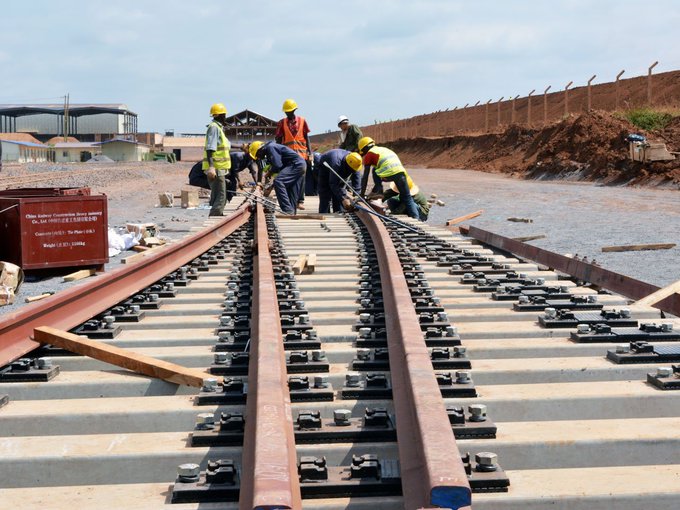President Yoweri Kaguta Museveni has launched the construction of the Uganda Standard Gauge Railway (SGR) to significantly transform the country’s transportation landscape and economic viability in the country and across East Africa.
President Museveni on Thursday, November 21, 2024, in Tororo, Bukedi sub-region, in a ribbon-cutting ceremony, launched the long-awaited construction of the SGR.
The 272-kilometer trail running from Malaba to Kampala aims at reducing transportation costs, alleviating congestion on roads, and enhancing trade efficiency.
President Museveni said that the SGR is aimed at cutting down cargo export costs by approximately 50%, shifting Uganda from one of the most expensive transport routes in the world to a more competitive status within the country and a region that is crucial for businesses that rely heavily on efficient logistics for their operations.
He added that the SGR extends the connection of Uganda’s capital to the Kenyan port of Mombasa; the railway will streamline the movement of goods, facilitating easier access to international markets that boost the country’s economy.
“The construction of the standard gauge railway will shift transportation from an individual to groups of individuals, reduce road congestion, and repair expenses,” Museveni said.
The president highlighted that after the construction of SGR, the operation is expected to “generate thousands of jobs,” contributing to local economies and enhancing overall economic growth. According to him, the project is anticipated to have multiplier effects, improving connectivity and stimulating investment across various sectors.
“Cheap electricity will be made available to help shoot economic growth by reducing the cost of production for businesses and increasing disposable income for households by extending electricity to rural areas to promote access to energy for local populations, businesses, and social services,” he said.
Currently, Uganda’s transport network faces significant challenges due to road congestion, especially in urban areas like Kampala. The SGR will, therefore, provide an alternative mode of transport for both passengers and freight, thereby reducing the burden on road infrastructure.
Read Also: Ugandan Government Fronts Local Content in Developing Standard Gauge Railway Project
However, with a shift from road to rail transport, there will be a reduction in carbon emissions and pollution associated with heavy truck traffic. This aligns with global sustainability goals and enhances the quality of life for communities along the transport routes.
The Ugandan government has signed a €2.7 billion contract with Turkey’s Yapı Merkezi for the construction of this railway section, with work expected to commence in November 2024 and conclude within four years.
The initiative marks a significant step forward in Uganda’s infrastructure development, as it seeks to enhance its economic competitiveness in East Africa. In summary, the launch of the Uganda Standard Gauge Railway is a landmark development that promises to reduce business costs, alleviate road congestion, and foster economic growth through improved regional connectivity.















